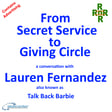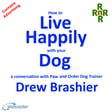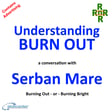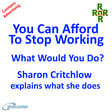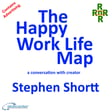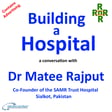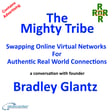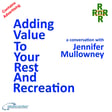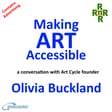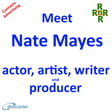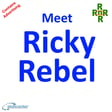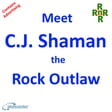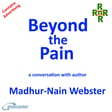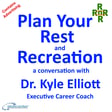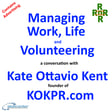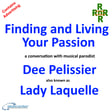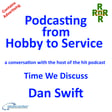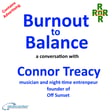
Discover the Treasure in your Child - a conversation with Dr Roxanne Daleo
Dr. Roxanne Daleo is a renowned clinician, leader, and pioneer in Health Psychology, is passionate about helping children discover their inner resources and realize their own self-worth.
A specialist in Paediatric Stress Management, specializing in working experiencing anxious situations, and coaching their parents.
In this episode of the Abeceder work life balance podcast Rest and Recreation Dr Daleo explains how children experience stress and anxiety and how they learn to manage those experiences.
Michael and Dr Daleo discuss situations that create stress for children, and how the behaviour of the adults in their life can influence how they deal with that negative situation.
You will learn simple straightforward techniques to help the child in your life to deal with stress and anxiety, even when you are feeling stressed.
Rest and Recreation is made on Zencastr, because creating podcasts on Zencastr is so easy.
If you would like to try podcasting using Zencastr use our offer code ABECEDER.
Thank you to the team at Matchmaker.fm for introducing me to Dr Daleo. Matchmaker.fm is where great hosts and even greater guests are matched, and fantastic podcasts are hatched. Use code MILW10 for a discount on membership.
Travel
Dr Daleo is based in Boston Massachusetts. Members of The Ultimate Travel Clubtravel to the USA and everywhere else at trade prices. Use our offer code ABEC79 to receive a discount on club membership.
Visit Abeceder for more information about Dr Roxanne Daleo and Michael Millward.
Proactive Positive Ageing.
It is always a good idea to know the risks early so that you can take appropriate actions to maintain good health, that is why we recommend The Annual Health Test from York Test.
York Test provides an Annual Health Test. An experienced phlebotomist will complete a full blood draw at your home or workplace. Hospital standard tests covering 39 different health markers are carried out in a UKAS-accredited and CQC-compliant laboratory.
A Personal Wellness Hub gives access your easy-to-understand results and guidance to help you make effective lifestyle changes anytime via your secure, personal Wellness Hub account.
Visit York Test and use this discount code REST25.
Being a Guest
If you would like to be a guest on Rest and Recreation, please contact Abeceder.
We recommend that potential guests take one of the podcasting guest training programmes available from Work Place Learning Centre.
Tech Problems?
Visit Three for information about business and personal telecom solutions from Three, and the special offers available when you quote our referral code WPFNUQHU.
If you have liked this episode of Rest and Recreation, please give it a like and download it. To make sure you do not miss future editions please subscribe.
Remember, the aim of all the podcasts produced by Abeceder is not to tell you what to think, but we do hope to make you think!
Thank you to you for listening.
We appreciate every like, download, and subscription.
